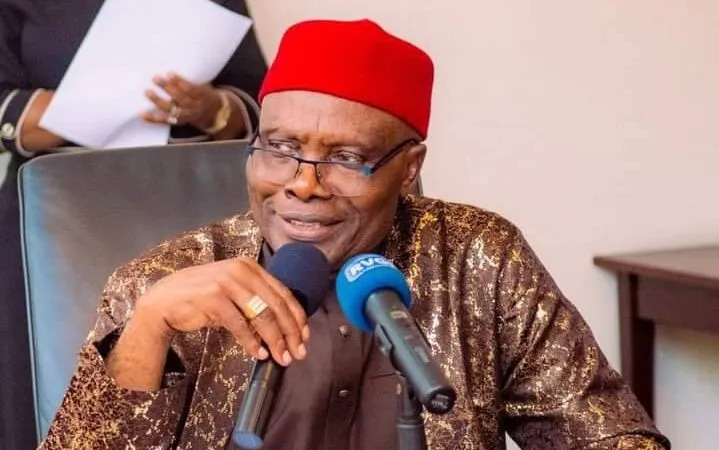The Peoples Democratic Party (PDP) has vehemently rejected the purported suspension of its Board of Trustees Chairman, Senator Adolphus Wabara, by the Abia State chapter of the party. The PDP’s National Working Committee (NWC) declared the suspension null and void, characterizing it as an illegal act that contravenes the party’s constitution and established disciplinary procedures. The controversy stems from Wabara’s endorsement of Abia State Governor Alex Otti, a member of the Labour Party, for a second term, a move that apparently angered the state chapter of the PDP.
At the heart of the dispute is the interpretation of the PDP’s constitution, specifically Section 57 (7). This section explicitly reserves the power to discipline members of the National Executive Committee (NEC), Deputy Governors, and National Assembly members solely to the NEC itself. As Wabara is a member of the NEC by virtue of his position as BoT Chairman, the NWC argues that the Abia State chapter lacks the jurisdictional authority to suspend him. The state chapter’s action, therefore, represents an overreach of its powers and a violation of the party’s internal governance structure.
The PDP’s national leadership has not only condemned the suspension as reckless and unconstitutional but has also issued a stern warning to those involved. The NWC has called on the Abia State chapter to rescind its decision and adhere to the party’s constitution. Failure to comply, the NWC cautioned, will result in disciplinary action against those responsible for the unauthorized suspension. This firm stance underscores the national leadership’s commitment to upholding the rule of law within the party and maintaining its internal discipline.
The Wabara suspension episode highlights the tension between the national and state levels of the PDP. While state chapters are expected to operate within the framework of the national constitution, instances of local dissent and independent action can occur, particularly in politically charged situations. Wabara’s endorsement of a rival party’s governor, while potentially divisive within the PDP, appears to have triggered a disproportionate response from the Abia State chapter, leading to a direct confrontation with the national leadership.
This internal conflict within the PDP comes at a sensitive time for the party as it seeks to rebuild and reposition itself in the political landscape. Public disagreements and disciplinary actions can project an image of disunity and instability, potentially undermining the party’s efforts to regain public trust and electoral success. The NWC’s decisive action in the Wabara case is likely aimed at containing the damage and reaffirming its authority over the party’s various branches.
The situation also raises questions about the internal dynamics within the PDP and the potential for future conflicts. The party’s constitution, while designed to provide a framework for governance and dispute resolution, can be subject to differing interpretations, leading to clashes between different levels of the party structure. The Wabara suspension serves as a reminder of the need for clear communication, adherence to established procedures, and a commitment to resolving internal disputes through dialogue and consultation rather than unilateral action. The party’s ability to manage such internal tensions will be crucial to its overall strength and effectiveness in the political arena.














